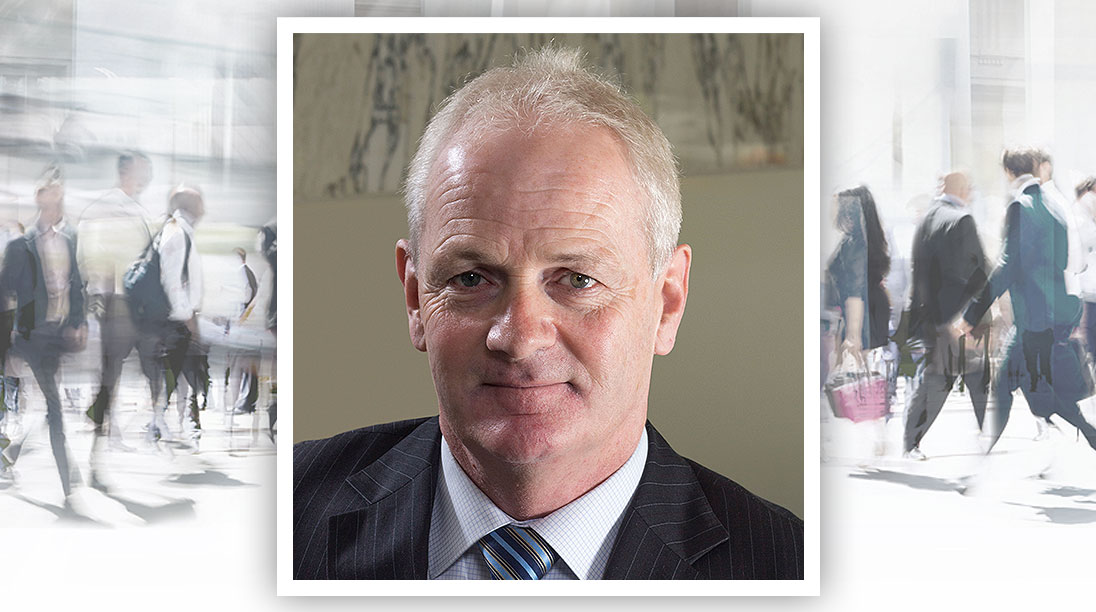The Victorian Automotive Chamber of Commerce (VACC) said the budget was “future focused with employment top of the agenda”.
The budget outlined a workforce plan with a $2.7 billion commitment over four years from 2020/21 to expand the apprenticeship commencements wage subsidy and support businesses taking on new apprentices and trainees.
VACC said this would boost apprenticeships and help support economic recovery and make it easier for employers to access and commit to taking on an apprentice.
VACC CEO Geoff Gwilym said the government has set its sights on getting unemployment below five per cent.

Geoff Gwilym
“It’s ambitious, but fresh investment in apprenticeships and training is key,” he said.
“People need jobs, industries need skills. This budget goes beyond acknowledging the problem. It’s about putting our money where it’s needed most.”
The latest VACC research shows that the automotive sector alone is suffering from a skills shortage of more than 31,000 – a snapshot of the chronic issue impacting numerous essential service industries.
The expanded apprenticeships program will open the number of eligible places and increase the duration of the 50 per cent wage subsidy to 12 months from the date an apprentice or trainee commences with their employer.
Another employment-building initiative outlined in the budget and highlighted by the VACC centres on skills reform.
The government has committed $285 million over five years towards skills reform to ensure state governments, employers and students invest in training that delivers the best outcomes to strengthen Australia’s skills base.
“Yes, we have made it through a year of unprecedented challenges, but Australia’s skills shortage goes way back,” Mr Gwilym said.
“We need to maintain a pipeline of workers and can no longer rely on skilled people coming from overseas. We need to look closer to home and create opportunities.”
The Australian Automotive Dealer Association (AADA), representing franchised new-car dealers, said the budget was a welcome commitment to securing Australia’s economic recovery.
AADA CEO James Voortman said the budget confirmed a “stunning” economic recovery for Australia and many of the measures announced will put the automotive industry in a good position to invest in Australia and employ Australians.

James Voortman
“This budget builds on the many measures put in place over the past 12 months which have encouraged business to take the lead in Australia’s economic recovery,” he said.
“Prior to the pandemic, the automotive industry had experienced a sustained period of falling sales and recession-like conditions but we have since been able to get back on our feet and dealers across Australia are grateful to the government for empowering business.”
Mr Voortman said the extension of the full expensing measure until June 30, 2023 will come as welcome news for many in the industry.
“This will give businesses, including Australia’s more than 3000 dealerships, the confidence to invest,” he said.
“The significant tax relief provided to many middle and lower-income Australians is welcome news and will no doubt instil consumers with the confidence to spend.
“Our industry, like many others, is experiencing a shortage of skilled staff and the extension of apprenticeship support and JobTrainer will go some way to help us to address those shortages.”
CommBank chief economist Stephen Halmarick said in his budget report that the two stand-outs for business were the drop in the tax rate for small and medium companies (to 25 per cent from 30 per cent) from July 1, 2021; and the temporary full expensing of capital expenditure and temporary loss carry-back provisions to be extended to include the 2022/23 financial year.
Mr Halmarick said these two measures were expected to provide an additional $20.7b in tax relief over the forward estimates.
The Australian Automobile Association (AAA) said the budget revealed that the federal expenditure on roads was more than promised in the previous budget, and that the latest budget shows a larger investment of $8.2b in 2021/2022.
It said it was pleasing to see the recent trend of budget infrastructure underspends corrected by the concerted effort of commonwealth and state governments to use infrastructure spending as economic stimulus.
AAA managing director Michael Bradley said the federal government had delivered on its commitment to fast-track road funding by removing roadblocks and identifying “shovel-ready projects” that would save lives as well as jobs during the COVID-19 pandemic.

Michael Bradley
“Last October the government committed to invest $7.38 billion throughout 2020/21 on road infrastructure and this budget shows this target will be surpassed with an investment of $7.77 billion by the end of this financial year, and a further $8.2 billion in the year ahead,” Mr Bradley said.
“Now that this standard of delivery has been set, motorists will expect the government to deliver in full on its road funding commitments in the year ahead.”
The AAA said it had long fought for governments to remove the roadblocks slowing the recent flow of promised road funds; and include incentives such as the “use it or lose it” provisions included in last October’s infrastructure package.
“These reforms appear to be delivering benefits however the AAA is concerned by the budget’s lack of clarity regarding any long-term commitments to the road safety program funding,” the AAA said in a statement.
“The budget papers make it clear that over the longer term, from 2021/22 to 2024/25, they are predicting a ‘decrease of 9.7 per cent in real terms’ in road transport.
“While the AAA has welcomed the additional $1 billion for the road safety program that will be allocated in 2022/23, it has serious concerns that the budget papers state the longer-term decrease in funding ‘reflects the completion of stimulus initiatives including the $3 billion road safety program’.”
The AAA said no government should view road safety through the prism of economic stimulus.
“Notwithstanding the huge human, economic and social impact of COVID-19, more people died on our roads throughout the past year,” Mr Bradley said.
“No Australian wants their government to say its interest in road safety is only pegged to economic returns.
“Saving each of those lives is equally important and should have the laser focus of governments.”
The AAA said in the 12 months from April 2020 to March 2021, there were 889 deaths from COVID-19 in Australia and 1127 road deaths for the same period.
Mr Bradley said it was not apparent from the budget papers that state and territory governments were honoring the road safety program requirements to report data to the commonwealth in return for funding.
“This will be critical to commonwealth efforts to take a leadership role on road safety through its recently established Office of Road Safety,” he said.
PDF: The AADA budget brief provides a snapshot of the highlights for new car Dealers
By Neil Dowling












 Read More: Related articles
Read More: Related articles

